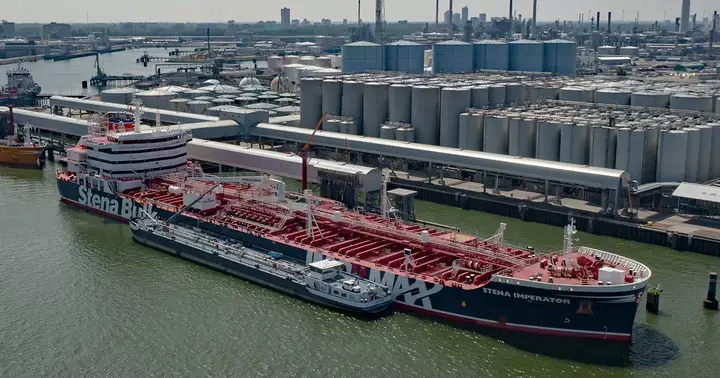Accurate Testing of Energy Content in Bio-Marine Fuels: A Crucial Aspect for the Maritime Industry
The maritime industry is undergoing a significant transition towards cleaner and more sustainable energy sources. Bio-marine fuels, such as biodiesel blends, are emerging as a promising alternative to traditional fossil fuels. However, the adoption of these fuels presents unique challenges, particularly in the accurate testing of energy content. This article explores the importance of precise energy content testing in bio-marine fuels and its impact on the maritime industry.
The shift towards bio-marine fuels is driven by the need to reduce greenhouse gas emissions and mitigate the environmental impact of maritime operations. However, bio-marine fuels have a lower energy content compared to conventional fossil fuels. The calculated net specific energy commonly used for fossil fuels may not apply to bio-marine fuels, making accurate testing essential. The energy content of bio-marine fuels is influenced by several factors, including the type of feedstock used, the production process, and the presence of oxygen.
Understanding the Challenges in Energy Content Testing
Bio-marine fuels, particularly biodiesel blends, have unique properties that affect their energy content. The cetane number of biodiesels, which measures combustion quality, often ranges from 50 to 65, surpassing that of petroleum diesel (about 40 to 50). This results in enhanced combustion efficiency and reduced ignition delay. However, the variability of oxygen content in fatty acid methyl esters (FAME) makes it challenging to calculate the energy content accurately.
Direct Measurement and Accredited Testing
To address these challenges, direct measurement using method ASTM D240 is required for blends containing more than 10% FAME. Accredited laboratories, such as CTI-Maritec, use the latest technology and equipment to ensure best-in-class testing. CTI-Maritec has been offering a full range of biodiesel blends testing since early 2022, ranging from B20 to B100. This ensures that the energy content of bio-marine fuels is accurately measured, providing reliable data for maritime operations.
Impact on the Maritime Industry
Accurate testing of energy content in bio-marine fuels is crucial for the maritime industry, as it affects the performance and efficiency of vessels. Inaccurate testing can lead to several issues, including:
- Reduced vessel performance and efficiency
- Increased fuel consumption and costs
- Potential engine damage and maintenance issues
- Non-compliance with regulatory requirements
Moreover, accurate testing of energy content is essential for ensuring the safe and efficient operation of vessels. It helps to:
- Optimize fuel management and reduce waste
- Improve vessel performance and reduce emissions
- Enhance crew safety and reduce the risk of accidents
Environmental Impact
The use of bio-marine fuels has the potential to reduce greenhouse gas emissions and mitigate the environmental impact of the maritime industry. However, the production of bio-marine fuels can have environmental implications, such as land use changes and water pollution. Accurate testing of energy content in bio-marine fuels can help to minimize these environmental impacts by:
- Ensuring the efficient use of bio-marine fuels
- Reducing waste and emissions
- Promoting the use of sustainable feedstocks
Summary
Accurate testing of energy content in bio-marine fuels is essential for the maritime industry, as it affects vessel performance, efficiency, and safety. The use of bio-marine fuels has the potential to reduce greenhouse gas emissions and mitigate the environmental impact of the maritime industry. However, accurate testing is crucial to ensure the safe and efficient operation of vessels and to minimize environmental impacts.
Conclusion
As the maritime industry continues to shift towards cleaner and more sustainable energy sources, the importance of accurate testing of energy content in bio-marine fuels will only continue to grow. It is essential for shipowners, operators, and regulators to prioritize accurate testing and ensure the safe and efficient use of bio-marine fuels. By doing so, the industry can contribute to a more sustainable future while maintaining operational excellence.
List of Sources
- Why accurate testing of Energy Content (Net Heat of Combustion) is …
- Accurate Testing of Energy Content Essential for Bio-Marine Fuels: Maritec
- Maritec: Accurate testing of energy content is essential for biofuels …
- CTI-Maritec: Why accurate testing of energy content is essential for …
- The importance of testing for accurate energy content of biofuels …
- PDF The Importance of Testing for Accurate Energy Content of Biofuels
- BioFuel Testing and Key Pre-emptive Measures – maritec.com.sg
- The Role of Biodiesel in Marine Decarbonization: Technological …
- MARITEC NAIAS & POLY NDT, members of CTI Group
- CTI-Maritec successfully tests biodiesel blends in bunker fuel


Leave a Reply